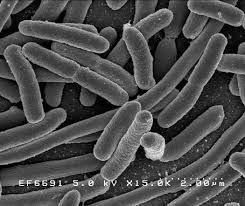E. Coli Outbreak Sickens Two Dozen In 15 U.S. States

An outbreak of E. coli in the United States sickened a couple of dozen people, the Centers for Disease Control and Prevention said Friday.
The outbreak was reported in 15 states, CDC said in a statement. "A total of 24 individuals infected with the outbreak strain of STEC O121 have been reported... [with] the number of ill persons identified in each state is as follows: Alabama (1), Arkansas (1), Illinois (1), Indiana (2), Michigan (2), Mississippi (1), New York (3), Ohio (3), Pennsylvania (1), South Dakota (1), Texas (3), Utah (1), Virginia (1), Washington (1), and Wisconsin (2)."
Rick Products Corp., of Buffalo, NY, is suspected as the source of the outbreak of Shiga toxin-producing Escherichia coli 0121, after an open package of frozen chicken quesadillas was found in a victim's home by New York state health officials, CDC said.
The company on Thursday recalled some 196,222 pounds of product, which included the chicken quesadillas and several other frozen food items, CDC said. The U.S. Department of Agriculture and the Food and Drug Administration are also investigating the source of the contamination.
Late last spring, an E. coli outbreak sickened a total of 14 people, hospitalizing three and killing one child in New Orleans. That outbreak involved half-dozen states, including Louisiana, Alabama, Georgia, Tennessee, Florida and California.
E. coli comprises a large family of bacteria, with most strains harmless to human health. Researchers consider E. coli O157:H7 to be most deadly, the strain that caused an outbreak via hamburger meat in the early 1990s. People infected by the bacteria tend to get sick within two to eight days after ingesting the food-borne contaminant with elderly people and those with weakened immune systems most prone. In susceptible people, the bacteria make toxins that poison the blood and cause kidney failure.
In 2010, the bacteria strain struck the U.S. population or the first time, sickening more than two dozen people in five states via romaine lettuce. Health officials say the disease has also spread through water and venison.



























